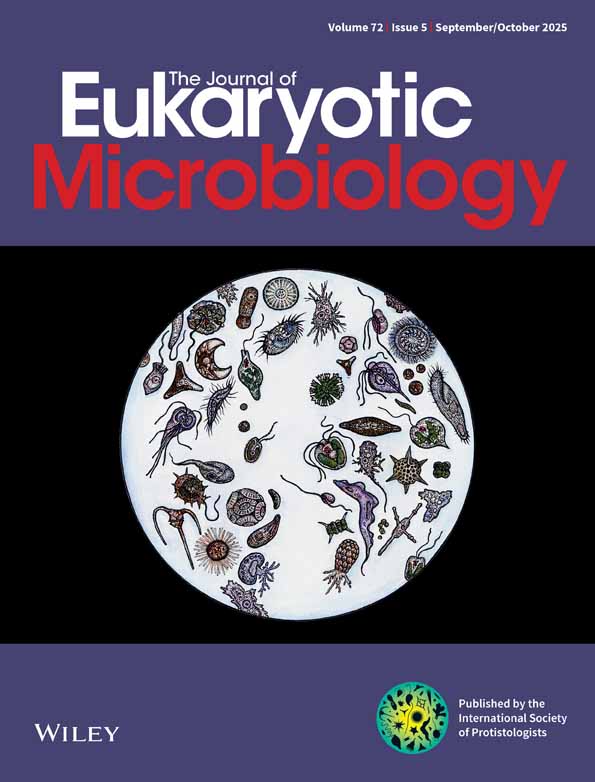The Nuclear Envelope of Amoeba proteus During Mitosis as Studied With a Monoclonal Antibody Against a Membrane-Associated Protein
On leave from Biology Department, Chungnam National University, Daejeon, Korea.
ABSTRACT
. The behavior of nuclear envelopes during mitosis in Amoeba proteus was studied by means of indirect immunofluo-rescence staining using a monoclonal antibody against a 220-kD membrane-associated protein of amoebae in conjunction with DAPI staining of chromatin. The antibody selectively recognized antigens on nuclear envelopes during interphase but did not react with the nuclear membranes during mitosis until after cytokinesis had been completed. Thus, it appeared that the membrane-associated protein reacting with the monoclonal antibody and normally present on the nuclear membranes was absent from fragmented nuclear membranes or nuclear membranes that were continuous but did not have the honey-comb lamina. The findings suggested that the 220-kD nuclear-membrane protein may be involved in the dissolution and reformation of the honey-comb lamina during mitosis in amoebae.




